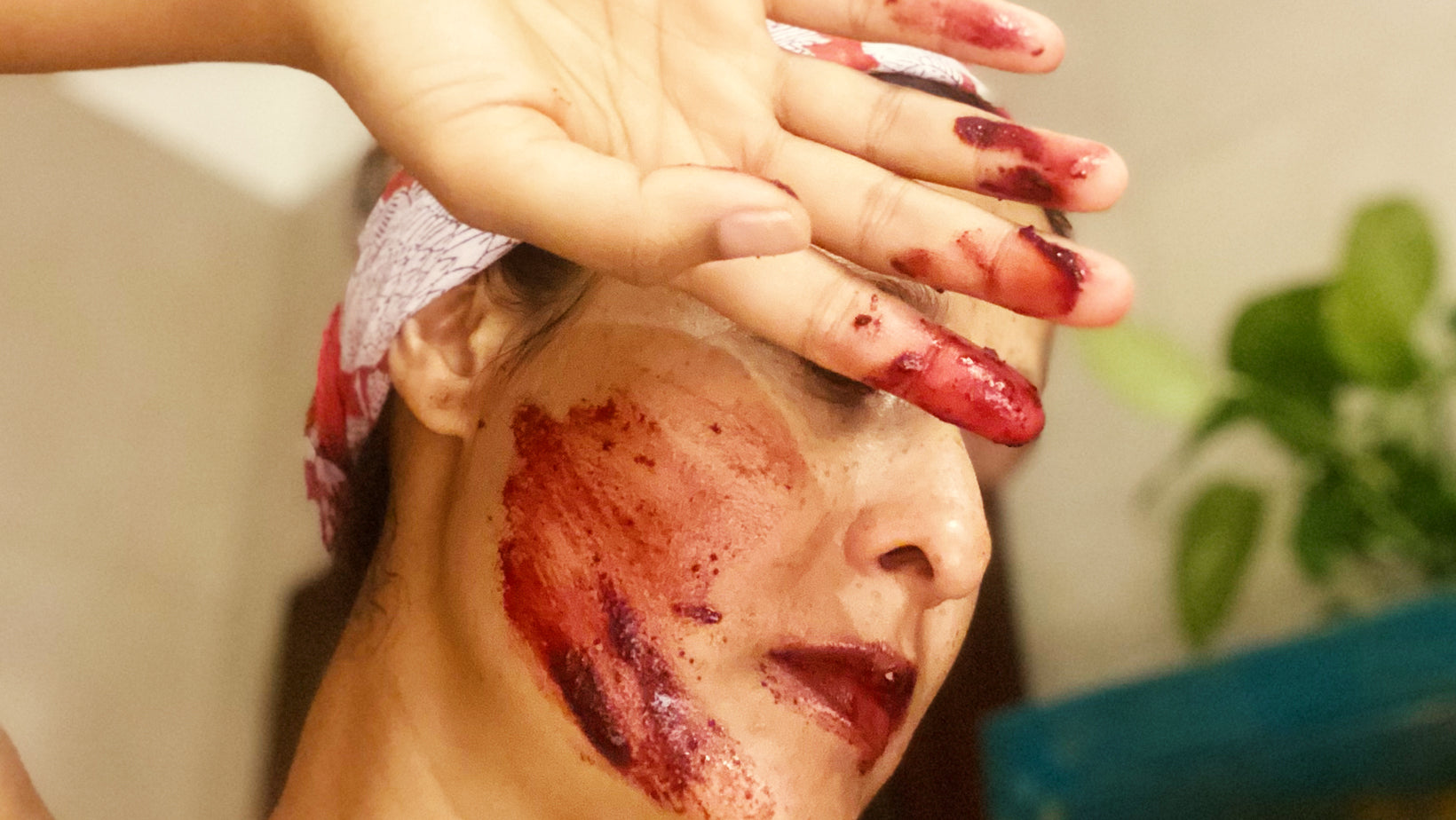
Impact of Stress On Skin And Hair
Stress is a normal emotion that our body is designed to experience in times of sudden changes. As our body perceives stress, the adrenal glands immediately start producing and releasing cortisols. These are commonly called ‘stress hormones’. You could be having a busy day at work, or undergoing tension in your personal life, the sources of stress in today’s times are endless. Lack of sleep and social fatigue are also major stress contributors. The overflow of these hormones in our body affects all of our mind, body, immune system, gut health, reproductive system and skin. So, let's understand these points in detail and by the end stop sweating over the small stuff and start believing that we’ve always been enough!
The Mind-Body-Skin Connection
Our body is a marvellous creation that has interconnected functions. Stress as an emotion not only plays around with our mind, but also has the ability to damage our skin and body in totality. When we are stressed, we find it difficult to concentrate, have mood swings or even anxiety. For instance, increased emotional and muscle tension can cause headaches or have you noticed a big pimple popping right before an important day? This is due to situational stress. But when we keep experiencing continual stress for a long period of time, our skin and body sees a big shift.
The constant secretion of cortisol in our body causes internal inflammation and affects our gut in terms of digestion, nutrient absorption, bloating, etc which further reflect on our skin. It also increases the sebum production in our skin glands, leading to clogged pores and acne breakouts. Stress even weakens our skin barrier against loss of moisture and makes our skin look older, deepens fine lines and winkles. Not to forget, stress also pushes our hair follicles in the resting phase making them brittle. This leads to hair loss.
De-stress and take care of your skin and hair
Start by processing and eliminating the negative emotions that surround you. We all need to clear our mind or at least try to direct it in a positive direction. Next, we should start taking care of the visible symptoms of stress on our skin by employing a little skincare and wellness routine in our daily life. It will instantly make us feel better and de-stress subtly. Stress often lowers our energy levels and we tend to skip our skin care routines. Make a realistic routine, something that involves just a step or two but follow it wholeheartedly. After a tiring day, I like to start my night care regime by refreshing my breath using herbal tooth powder and a copper tongue cleaner.
Next, I use the ‘Sprout Again’ hair growth gel and give myself a deep head massage. It truly relaxes me. For acne, ‘Breakout at Bay’ works really well. Lastly, to relieve all my stressed muscles from a hectic day at work, I scoop out a little of ‘Sore Muscle Salve’ and massage my neck and lower back with comfortable pressure.
Might I also point out how happy and glowing our skin looks when we are on a vacation? It is simply because our mind and soul is relaxed and calm. Let’s aim for the same tranquillity in our daily lives as well.
Love,
Sunayana
Frequently Asked Question related to Impact of Stress on Skin and Hair
Does stress weaken skin?
Yes, stress can weaken the skin. It triggers hormonal changes that can lead to increased oil production, breakouts, and inflammation.
Can stress cause pimples?
Yes, stress can trigger pimples. Stress hormones can increase oil production in the skin, leading to clogged pores and breakouts.
Can stress change your face shape?
Yes, stress can indirectly affect face shape by causing muscle tension and changes in posture, leading to facial tension and sagging.
How can I control my hair loss due to stress?
To control hair loss from stress, try natural remedies like massaging scalp with essential oils (like rosemary or lavender), using gentle shampoos, and eating a balanced diet rich in vitamins and minerals.
Does stress increase DHT levels?
Yes, stress can increase DHT (dihydrotestosterone) levels. High levels of stress may contribute to hormonal imbalances, potentially leading to an increase in DHT, which can impact hair health and other aspects of well-being. Stress management techniques can help mitigate this effect.

Leave a comment
This site is protected by reCAPTCHA and the Google Privacy Policy and Terms of Service apply.